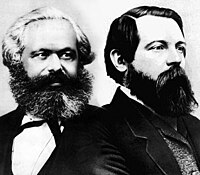
Photo from wikipedia
A popular orientation about the meaning of human life in scholarly and public discourses is to conceive of human life as a form of existence whose essential value exists per… Click to show full abstract
A popular orientation about the meaning of human life in scholarly and public discourses is to conceive of human life as a form of existence whose essential value exists per se, that is, human life is necessary and not contingent on other ideals or entities. The import of this orientation is that human life is valuable in and by itself; and thus held to be sacred. This article employs expository and hermeneutical approaches in arguing for a fluid and ambivalent understanding of human life among the Yorùbá people mostly in Nigeria. By drawing from orature – sayings, anecdotes, proverbs – the article shall argue for the preponderance among the Yorùbá of a situation approach where the quality of life of an individual, social status, moral conduct and the particular context of death determines the value attached to human life. Such contextual ambivalence in the meaning of life ensures that the duty to preserve human life is at one instance considered noble, and in another instance, human life seems to be given less value. Quality of life, individual social status and the moral conduct of individuals function as existential schemes central to an understanding of the Yorùbá attitude to life and post-mortem existence. Beyond the religio-cultural semiotics through which the Yorùbá relate to human life and the passage from life to death, the article submits that a Yorùbá orientation which emphasises that life is meaningful on the basis of the quality of life is the foundation for a Yorùbá ethics of human life.
Journal Title: South African Journal of Philosophy
Year Published: 2020
Link to full text (if available)
Share on Social Media: Sign Up to like & get
recommendations!